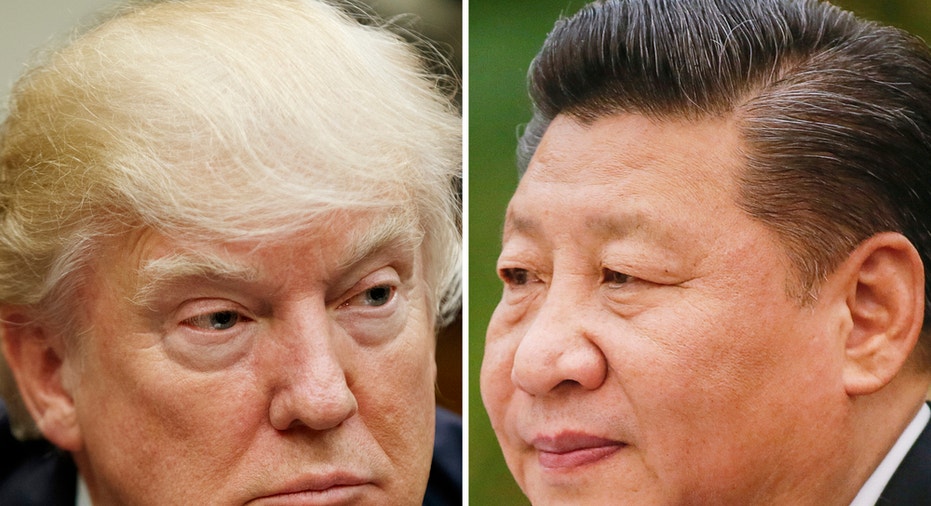Trump, Xi Meeting: Will China Finally Make Good on its Promises?

President Donald Trump is meeting with Chinese President Xi Jinping at Mar-a-Lago beginning Thursday, in what has become a hotly anticipated conference where the two are expected to discuss contentious international issues, ranging from North Korea’s nuclear provocations to trade.
As far as trade discussions, steel dumping is expected to be near the top of that list. For years, China -- which was admitted to the World Trade Organization in 2001-- has been accused of flooding foreign markets with steel it sells at a lower price than what it charges domestically.
China has “as much as 400 million metric tons†in steel overcapacity, according to Gordon Chang, author of “The Coming Collapse of China.†This is the result of a couple things, including the fact that the Chinese government subsidizes or controls many companies, Chang said.
Another factor that has added to China’s steel glut is a Chinese manufacturing boom, which has included “massive investments†in infrastructure over the past 15 years, Steve Mehltretter, partner in the Metals & Mining Practice at global management consulting firm A.T. Kearney, told FOX Business.
In theory, excess capacity hasn’t been a problem unique to China. However, there is an important difference in how other countries have managed their gluts within the global economy.
“The big players in North America and Europe, they have been removing capacity over time to try to get supply and demand back in balance,†Mehltretter said.
While the U.S. has closed factories and laid off workers—with 14,500 layoffs between January 2015 and June 2016 alone according to a United Steel Workers Report—China has continued to produce and add to the global steel glut.
“The Beijing government makes a promise every year they will reduce overcapacity and that doesn’t happen,†Scott Paul, president of the Alliance for American Manufacturing, told FOX Business.
In 2016 China produced more than 808 million metric tons of steel, nearly 50% of the world’s total output, according to the World Steel Association. By contrast, the United States produced less than 79 million metric tons, or 4.8% of global output.
While companies in Europe and Mexico are also impacted by this practice, Paul said the United States is the most vulnerable.
“U.S. steelmakers feel this more than anyone else because our market is so open, we have very low tariffs … In many other countries they try to find ways to keep that Chinese steel out,†he said.
The act of dumping is not directly against WTO rules, as Dan Ikenson, director of the Cato Institute's Herbert A. Stiefel Center for Trade Policy Studies, pointed out. However, many countries have their own anti-dumping laws. The U.S. imposes duties.
The Trump Card
Last week the president signed an executive order specifically targeting countries who owe the U.S. anti-dumping duties. But Washington will need to take firmer action in order to correct the imbalances within the steel industry, Paul said.
“I would compare this to putting Band-Aids on a chronically ill person … Ultimately you need the cure, the cure is eliminating the overcapacity and eliminating China’s anti-competitive practices,†he said.
Paul is hopeful Trump will make progress during his talks with China. While President Trump predicted on Twitter that he would have a “difficult†meeting with President Xi, he may have the upper hand when it comes to trade, Chang said.
“Trump can employ the rough tactics that China uses against us … [But he] might not need to actually impose such bans, quotas, or tariffs — the mere threat of them would probably be enough to get China to shut down capacity fast and eliminate subsidies … China needs access to the American market more than American producers need access to China. Trump holds the high cards and should play them.â€
On Tuesday during a town hall with more than 50 CEOs and business leaders, Trump mentioned the meeting, saying it will be an “interesting talk.â€
“[I] have a lot of respect for [President Xi]. I’ve spoken to him numerous times. But we have to do better, because our deficit with China, as you know, $504 billion. That’s [per] year. That’s enough for a lifetime,†he said.



















